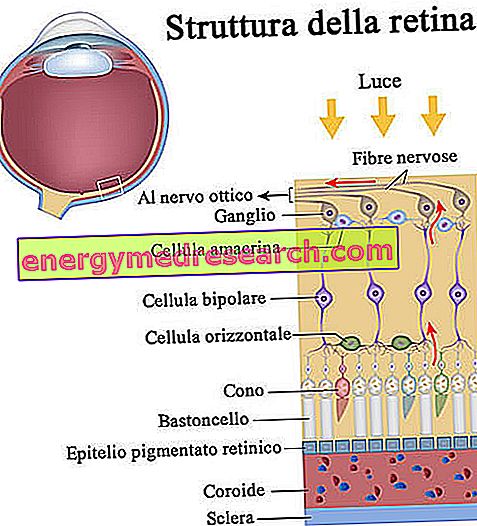Constipation or constipation is defined as a symptom characterized by an alteration in fecal consistency and evacuation frequency.
Constipation causes:
- Reduction of defecation (<2 week)
- Hard feces (also goat or ribbon)
- Sense of incomplete emptying and constipation
- Difficulty, pain and slowness during expulsion.

Constipation is defined when the symptoms remain for at least 3 months. It affects mostly young males and adult females, in addition to the elderly.
It is not a real disease but it creates a very intense discomfort for those who suffer from it.
It can be triggered by: various anatomical pathologies, hormonal imbalances, dietary factors, alteration of the bacterial flora, modification of circadian rhythms or habits, dehydration, nervous factors, lifestyle etc.
Constipation correlates to the onset of various more or less serious pathologies, which is why it is essential to try to identify its origin and treat it.
Moreover, we must not forget that constipation can cause or aggravate:
- Hemorrhoids.
- Anal fissures.
- Rectocele.
- Rectal prolapse.
- Tumors.
- Diverticulitis.
What to do
- Finding one or more of the discomforts related to constipation it is necessary to contact a doctor immediately. This is especially important when constipation:
- It arises quickly.
- It has lasted a long time.
- It is accompanied by:
- Strong abdominal pain.
- Bleeding.
- Asthenia.
- Familiarity with colon cancer.
- Temperature.
- The diagnostic path, in addition to the anamnesis and the analysis of symptoms and clinical signs, should include one or more of the following analyzes:
- Colonoscopy.
- Double contrast barium enema.
- Study of intestinal transit times.
- Anorectal manometry.
- Diagnosis has the function of looking for the root cause of constipation, without which it is difficult to prevent and cure it. Among the morbid conditions most often responsible for constipation we mention:
- Anatomical alterations and stenosis.
- Diabetes and hypothyroidism.
- Pregnancy.
- Irritable bowel syndrome (IBS, is the most frequent).
- Tumors.
- Excessive drugs against diarrhea.
- If the search for these factors is negative, the other elements must be analyzed in detail:
- Diet (at least 30g of fiber per day).
- State of hydration (at least 1ml / kcal introduced, therefore 1.8-2.2 liters per day for an adult).
- Tropism of intestinal bacterial flora
- Sleep waking rhythms (especially in shift workers).
- Degree of general psychological stress.
- Physical motor activity level.
- The treatment of constipation involves first of all the care of the triggering cause. However, when it is of idiopathic origin or caused by IBS, it becomes necessary to follow some guidelines:
- Improve the composition of the diet, increasing the beneficial nutritional components (especially fibers and other prebiotics) and reducing counterproductive ones (astringents).
- Increase the general state of hydration and prevent dehydration.
- Optimize the composition and density of physiological bacterial flora in the intestine using probiotics.
- Cut out a moment of the day to devote to evacuation. People often become constipated due to neglect.
- Reduce the level of psychological stress and promote relaxation.
What NOT to do
- Ignore constipation and other related symptoms.
- Do not respect the diagnostic path.
- Do not cure the disease that causes constipation.
- Follow an inadequate diet, rich in astringent products and low in fiber, prebiotics and laxatives.
- Stay dehydrated:
- Take foods or beverages that promote dehydration (alcohol, coffee, thermogenic etc.).
- Follow a ketogenic diet: it tends to increase renal filtration by dehydrating the body.
- Drink little, especially in case of intense sweating.
- Do not follow probiotic therapy if advised by your doctor or nutritionist
- To have a lifestyle that is not regulated, discontinuous and without rhythms.
- Suffering from deep and constant stress.
- Neglecting the perception of the urge to defecate and postpone episodes (it often happens in the presence of severe pain and / or bleeding due to hemorrhoids and fissures).
- Sedentary lifestyle.
- Exceed with astringent products in case of diarrhea. Sometimes, constipation is the result of a "rebound effect" in the drug therapy of diarrhea.
- Exceed with natural remedies and constipation drugs. They can be addictive and create a dangerous rebound effect.
What to eat
The nutritional regime against constipation is called "high residue diet", which means rich in fiber.
- Foods rich in fiber. The soluble ones are more recommended, but usually the foods contain both. Furthermore, the percentage of insoluble ones is generally higher.
- Cereals: the whole grains are preferred. The fibrous portion of these foods is above all insoluble, but it is advisable to include them in the diet.
- Legumes: prefer those with peel. Many think that the side effect of legume intake, or flatulence, derives mainly from the fibrous component; It is not so. This is the effect of certain anti-nutritional molecules that remain in excessive quantities in undercooked vegetables. NB . Soaking dry ones (eliminating water) is a factor that helps their expulsion.
- Vegetables and fruits: these are foods that contain more soluble fiber.
- Oilseeds: the so-called dried fruit is very rich in fiber; however, they are also high in fat and can have an excessive caloric impact. In the daily diet should be placed in the amount of a few grams.
- Algae: they are a predominantly oriental food that boasts numerous positive characteristics; among these, the richness in soluble fibers.
Furthermore, we recommend:
- Guaranteeing the supply of fats: 25-30% of the energy in fats favors the lubrication of the feces and the consequent slipping in the intestine. It is advisable to prefer:
- Vegetable oils, preferably cold pressed: they soften the stools, are liquid at room temperature and provide many healthy nutrients.
- Eating heavily hydrated foods: as anticipated, the cause of fecal hardening is dehydration. We recommend water-rich foods and recipes such as:
- Fresh and raw foods: especially fruits and vegetables.
- Soups in broth.
- Cereal soups or legumes in broth.
- Milk and yogurt.
- Fish and meat soups.
- Drink plenty of water both between meals and meals.
- Insert probiotic foods: they enrich the intestinal bacterial flora and can improve the health of the intestine: yogurt, buttermilk, kefir, tofu, tempeh, miso, kombucha, sauerkraut, gherkins etc. on the other hand, it must be remembered that the acidic barrier of the stomach eliminates most of the microorganisms.
- Insert prebiotic foods: these are the foods containing the nourishing molecules for the intestinal bacterial flora. These are called unavailable carbohydrates and fiber. The fired fibers have an extremely prebiotic function; heat treatment tends to hydrolyse them partially, facilitating bacterial nutrition.
- Laxative foods: this category is generic and contains all the products capable of exerting a laxative effect. They are laxatives: rehydrated dried prunes (also drinking the soaking water), milk (especially hot), yogurt, broth, honey, beer (especially raw), blackberries, grapes, peaches, licorice, figs, kiwis, sauces, etc.
NB . Some people are very sensitive to taking nervini. A cup of coffee in the morning could reduce the symptom of constipation.
What NOT to Eat
- Among the foods that contain fiber, it is not advisable to prefer:
- Refined grains and equally purified flours (for example, wheat flour type 00, cornstarch, rice starch, tapioca, white pasta and bread, sugar, etc.).
- Dehulled legumes.
- Vegetables and fruits peeled, passed, centrifuged or naturally poor in fibers (for example banana, potato, etc.).
- It is not advisable to follow hypolipid diets, ie with a quantity of fat lower than 25% of the energy.
- Eat dehydrated foods:
- Cheeses and cured meats.
- Dried meat and fish.
- Meat and fish in salt or in oil.
- Condensed milk.
- Dehydrated dehydrated fruit, concentrated, cooked and squeezed vegetables (such as spinach) etc.
- Crackers, breadsticks, croutons etc. instead of fresh bread.
- Dry snacks (fried corn, peanuts, nachos, etc.).
- Astringent foods: the astringent action has a rather subjective effect. Some are: tea, lemon juice, banana, boiled white rice, carob and flour etc.
- Diuretic supplements.
Natural Cures and Remedies
The natural remedies against constipation are mainly of the type: hygienic behavioral, food supplements and herbal products.
- Correction of habits:
- Plan a time of day to go to the bathroom.
- Respect the stimuli: make use also of the public baths. Do not postpone for fear of effort or pain; the following act will certainly be worse.
- Do not strain too much: fatigue can lead to several complications.
- Training the muscles of the abdominal girdle and pelvic floor: they are deputies for defecation and a greater efficiency can only be positive.
- Practicing motor activity: in addition to the previous reason, mechanical stress (vibrations, rebounds, etc.) stimulates the progress of the faeces in the colon.
- Laxative Plants; it is advisable to use them only when strictly necessary:
- Anthraquinone drugs: senna, cascara, frangola, aloe juice, rhubarb.
- Oils: castor oil, olive oil etc.
- Products rich in fibers or extracted fibers: bran, psyllium seeds, various mucilages (eg agar agar), various gums (guar, karaya etc.).
- Amorphophallus konjac and glucomannans extracted.
- Food and plants: tamarind, honey, cassia, senna, dried prunes (also drink water).
- Laxative teas: they are infusions or decoctions that reduce constipation. Example:
- Frangula bark, linseed, star anise and licorice. Pour a tablespoon of the preparation in 200ml of boiling water. Bring to cooling and filter. Take a cup of it in the evening.
- Inorganic salts.
- Mineral oils.
Pharmacological care
They are very effective but also have different side effects. Some cause addiction, others violent diarrhea. Some irritate the intestine to the point of causing mucus to be expelled.
- Phenolphthalein.
- Bisacodyl.
- Picosulfate.
- Dioctyl sulfosuccinate sodium.
- Sorbitol.
- Lactulose.
- Methyl cellulose.
- Polyethylene glycol.
Extraction drugs derived from certain natural products also belong to this category. For example:
- anthraquinones:
- Bisacodyl (eg Dulcolax, Stixenil, Alaxa).
- Senna (eg Xprep, Agiolax, Pursennid, Falquilax).
- Sodium docusate (eg Macrolax, Sorbiclis).
- Volume laxatives:
- Methyl cellulose.
- Rubber Sterculia (eg Normacol).
- Psyllium seeds (eg Fuibrolax).
- Emollients / lubricants:
- Liquid paraffin (for example Lacrilube, Paraf L BIN).
- Peanut oil in enemas.
- Glycerin in enemas
- Osmotic laxatives:
- Lactulose (eg Duphalac, Epalfen, Normase).
- Macrogol (for example Movicol, Isocolan, Selg Esse, Moviprep, Paxabel).
- anticholinesterase:
- Bethanecol (eg Myocholine).
- Neostigmine (eg Prostigmine).
- Saline laxatives:
- Phosphates (eg Sod Fos Sof Clisma, Sod Fos Zet Clisma).
- Magnesium hydroxide (eg Magnesia, Maalox).
- Sodium Citrate (eg Biochetasi, Novilax).
Prevention
The prevention of constipation can be implemented in a few simple steps:
- Following a balanced diet rich in: fiber, water, probiotics, prebiotics, etc.
- Following a diet low in: astringents, alcohol, caffeine and other nerves.
- Avoiding dehydration: compensating for sweating, limiting dehydrating products, etc.
- Dedicating attention and time to evacuation.
- Performing motor activity.
- If necessary, take a few natural remedies such as herbal teas, extra fibers, etc.
- Taking care of any primary pathologies that trigger constipation.
Medical Treatments
There are no medical treatments for constipation other than supplements and drugs.
The only exception is the treatment for primary disorders that trigger constipation.



